- 4 July 2016
- Middle East
The number of people killed in Sunday's suicide bomb attack in the Iraqi capital, Baghdad, has risen to 165, interior ministry officials say.
The government has declared three days of mourning after the huge blast, which also injured 225 people.
A lorry packed with explosives was detonated in the Karrada district while families were shopping for the holiday marking the end of Ramadan.
It is believed to be the deadliest single bomb attack in Iraq since 2007.
Rescuers said whole families had been killed. Many people were badly burned.
So-called Islamic State (IS) has said it carried out the suicide attack.
Prime Minister Haider al-Abadi was greeted by angry crowds when he visited the mainly Shia Muslim area in the hours after the bombing.
His office said Mr Abadi understood the reaction of residents and would increase security by banning "magic wand" fake bomb detectors and improving vehicle inspections at roads into the city.
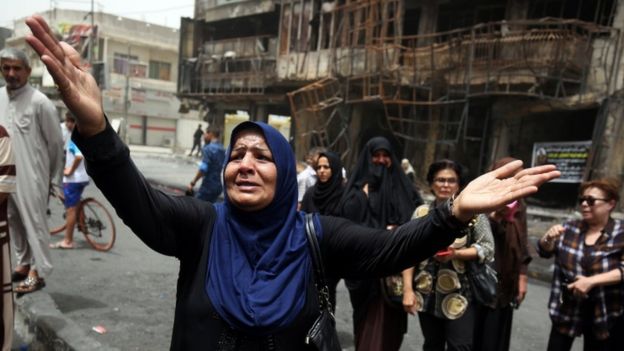 AFP
AFP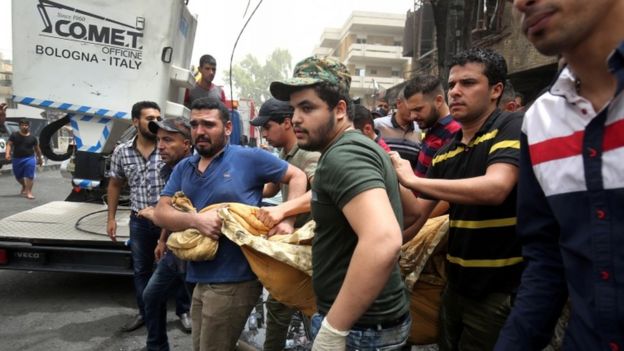 AFP
AFP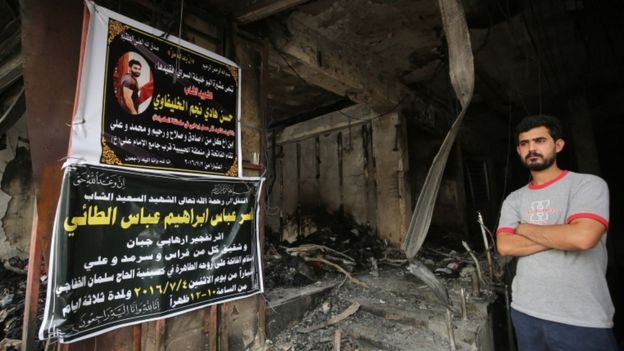 AFP
AFP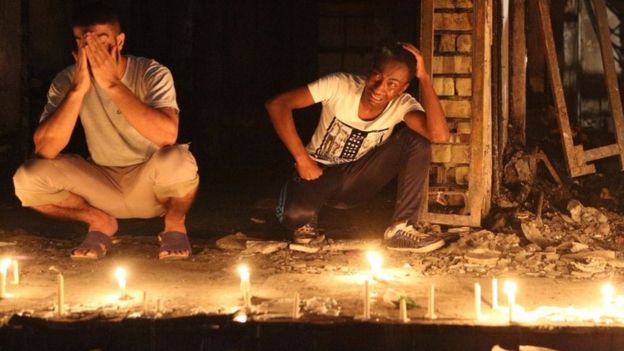 AP
AP
The fake bomb detectors, some based on cheap devices for finding golf balls, were sold in large numbers to Iraq by fraudsters.
One British businessman, who was jailed for 10 years, sold more than 6,000 devices to Iraq for up to $40,000 (£30,000) each.
The UK banned their export to Iraq in 2010 and several other fraudsters received prison sentences. Despite warnings that the devices were useless, the Iraqi security forces continued to use them.
Engulfed in flames
Men continued to dig through rubble at the Karrada site on Monday, searching for the remains of those still missing.
Black banners were hung from nearby buildings bearing the names of victims and detailing their funerals.
In a statement on the attack, the Iraqi justice ministry said (in Arabic) that a group of prisoners convicted of terrorist crimes would be put to death in the immediate future.
The bombing at around midnight on Saturday came a week after Iraqi forcesrecaptured the city of Falluja from IS.
Reports said a refrigerator van had been packed with explosives and left near the popular Hadi Center.
Footage from the minutes just after the blast showed the whole area engulfed in flames.
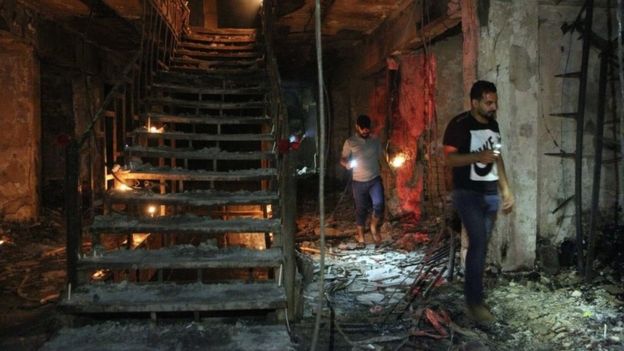 AP
AP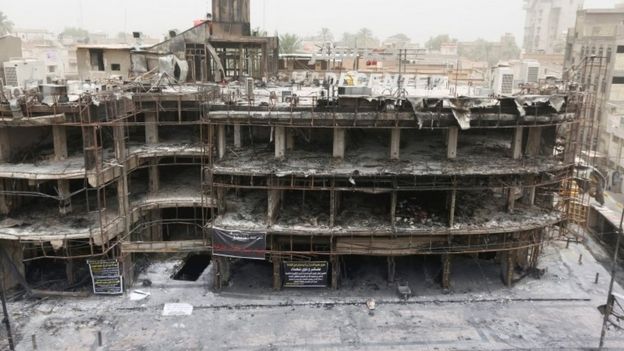 REUTERS
REUTERS
"We need a number of days to be able to recover the bodies of victims. It is a difficult task," a member of the civil defence forces quoted by AFP news agency said.
"The lists of victims I saw included whole families - the father and his sons, the mother and her daughters - whole families were wiped out by this explosion."
A second bomb exploded shortly afterwards in another predominantly Shia area north of the capital, killing another five people.
The self-styled IS, which follows its own extreme version of Sunni Islam, said in an online statement that the attack in Karrada was carried out by an Iraqi as part of "ongoing security operations".
The US said on Sunday that the attack strengthened its resolve to support Iraqi forces in their fight against IS.
UN Iraq envoy Jan Kubis said IS militants who had "suffered defeats at the battlefront are seeking to avenge their losses by targeting vulnerable civilians".

Deadly IS attacks in 2016
 AP
AP
9 June 2016: At least 30 people killed in and around Baghdad in two suicide attacks claimed by IS
17 May 2016: Four bomb blasts kill 69 people in Baghdad; three of the targets were Shia areas
11 May 2016: Car bombs in Baghdad kill 93 people, including 64 in market in Shia district of Sadr City
1 May 2016: Two car bombs kill at least 33 people in southern city of Samawa
26 March 2016: Suicide attack targets football match in central city of Iskandariya,killing at least 32
6 March 2016: Fuel tanker blown up at checkpoint near central city of Hilla, killing 47
28 February 2016: Twin suicide bomb attacks hit market in Sadr City, killing 70


No comments:
Post a Comment